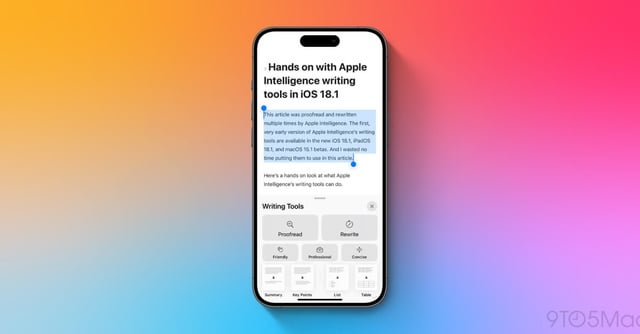Exploring Apple’s Intelligence System
Apple’s Intelligence System refers to the sophisticated AI-powered technologies integrated into Apple devices and services to enhance user experience and efficiency. This system utilizes machine learning algorithms, deep learning, and data analytics to provide personalized recommendations, predictive capabilities, and intelligent features across various Apple products.
Unveiling the Power of Apple’s AI
Apple’s Intelligence System gathers and analyzes user data from various sources to create individualized experiences for users. By leveraging AI algorithms, Apple can anticipate user needs, suggest relevant content, and streamline tasks such as Siri suggestions, personalized app recommendations, and predictive text input.
Embracing Innovation in Personalization
One critical aspect of Apple’s intelligence system is its commitment to privacy and data security. By employing on-device processing and encryption, Apple ensures that user data remains secure while still delivering tailored services and recommendations. This highlights Apple’s dedication to providing a personalized experience without compromising user privacy.
How Meta’s iOS Apps Are Affected
With Apple’s introduction of App Tracking Transparency (ATT) and its impact on targeted advertising, Meta’s iOS apps face significant challenges. Meta, formerly known as Facebook, heavily relies on user data for personalized advertising, making the restrictions imposed by ATT a major obstacle.
Meta’s iOS apps, including Facebook, Instagram, and WhatsApp, are affected by the limitations on tracking user activities across apps and websites. This diminishes Meta’s ability to deliver tailored ads based on user behavior, leading to a potential decrease in ad effectiveness and revenue.
The changes in tracking capabilities also affect Meta’s ability to measure campaign performance accurately, which is crucial for optimizing advertising strategies and demonstrating ROI to businesses. This disruption may compel Meta to explore alternative methods like contextual advertising or first-party data to maintain effective ad targeting.
Moreover, the competitive landscape and evolving privacy regulations add further complexity to Meta’s iOS app challenges. Adapting to these changes requires Meta to innovate its advertising approach, enhance user privacy protections, and foster transparency to regain user trust.
In conclusion, the effects of ATT on Meta’s iOS apps are profound, necessitating strategic adaptations to uphold advertising revenue and relevance in the evolving digital ecosystem.
The Implications for Users and Developers
Understanding the implications of a new software update or technological advancement is crucial for both users and developers. Users may underestimate the impact of changes on their privacy and data security, while developers sometimes overlook user experience or compatibility issues. It’s essential for both parties to stay informed and adapt to ensure seamless integration and optimal performance.
Future Outlook: Navigating Apple’s Ecosystem Challenges
Expert Insights (Q&A)
Q: What are the most significant misconceptions about Future Outlook: Navigating Apple’s Ecosystem Challenges?
A: While many assume that Apple’s ecosystem challenges are solely about competition, the reality is that managing a vast and intricate ecosystem like Apple’s involves complexities beyond rivalry. From balancing hardware and software integration to addressing consumer demands and privacy concerns, the challenges go far deeper than surface-level competition.
Q: Why does Future Outlook: Navigating Apple’s Ecosystem Challenges matter more than most people realize?
A: The future of Apple’s ecosystem carries immense significance not only for the company but for the tech industry as a whole. As Apple navigates these challenges, the decisions made will impact everything from user experience to market dynamics. Understanding and anticipating these shifts is crucial for businesses and consumers alike to stay informed and adapt to the changing landscape.
Q: How is Future Outlook: Navigating Apple’s Ecosystem Challenges likely to evolve in the coming years?
A: Over the coming years, Apple’s ecosystem challenges will likely evolve in response to technological advancements, regulatory changes, and shifting consumer preferences. Anticipated developments may include enhanced cross-device integration, greater focus on sustainability and ethical practices, and innovative solutions to foster user loyalty amidst a competitive market. Adapting to these changes will be essential for Apple’s continued success and relevance in the evolving tech ecosystem.












Leave a Reply